Pre-loved wear: 'South Asian clothes can live more than one life'
- Published
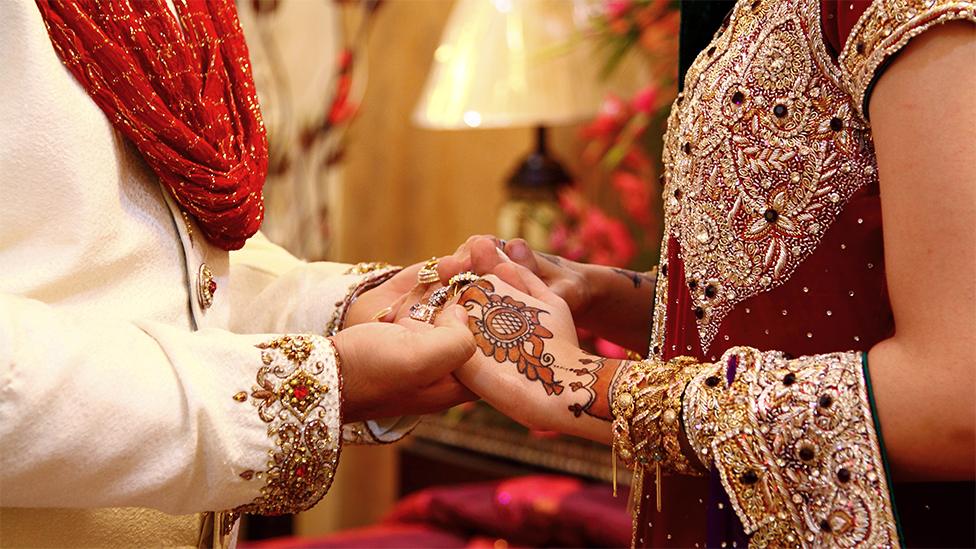
Outfits for South Asian weddings tend to be a sparkly affair
Food, dance, decor and, of course, extravagant outfits. It tends to be a lavish affair when it comes to big fat Asian weddings.
It can cost hundreds, sometimes thousands, for bright, sparkly South Asian outfits, even though they're often worn once before being packed away into boxes and left to gather dust.
But as BBC Asian Network's been finding out, some people have been turning to "pre-loved" as an alternative that might be better for the environment - and your bank balance.
Anoli Mehta has used the concept for Asian wear, after spending a fortune on new outfits over a long summer full of weddings.
"At the end of the year I was sitting on 10 outfits that realistically I wasn't going to wear again," she says.
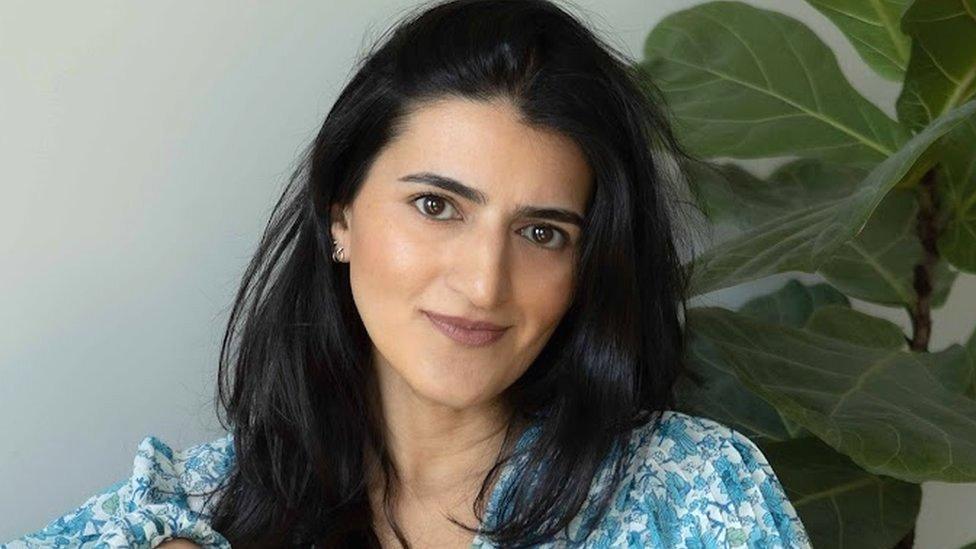
Anoli Mehta says people are starting to give their Asian outfits a new lease of life
There has been some criticism that renting clothes might not be as sustainable as people think.
Transport accounts for a huge chunk of the UK's carbon emissions and, with billions of parcels delivered each year, online orders contribute to that.
But Anoli thinks there's a benefit when considering the lengths some people currently go to in order to purchase their dazzling gear.
"Buying outfits is time-consuming," she says.
"It's costly and many people end up flying to India or Pakistan [to buy them] which has a huge impact on the environment."
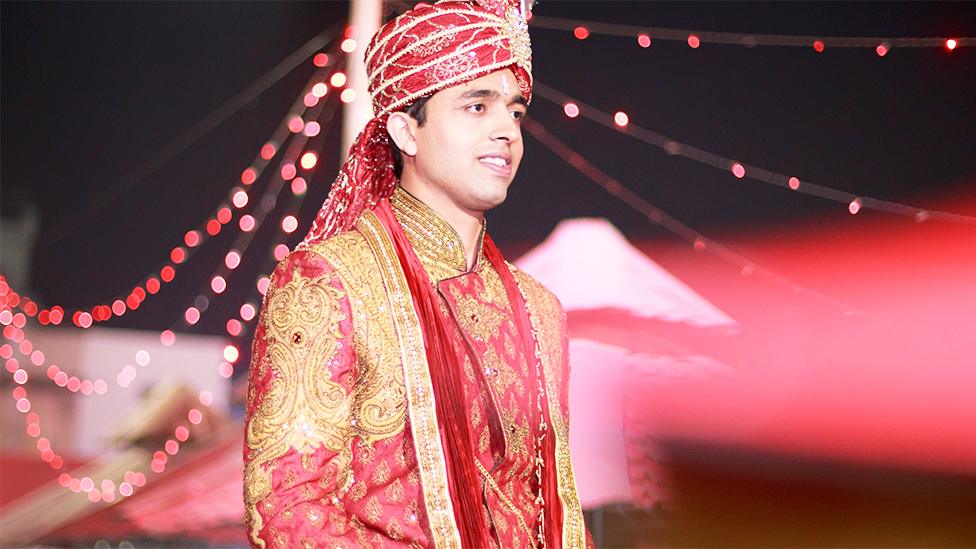
Intricate patterns on wedding outfits are common in South Asian weddings
While second-hand clothing apps in general have seen a rise in usage, some feel the platforms have not been as fruitful over the years for South Asian clothes.
People like Amna Saeed have put their outfits on those more mainstream sites without much luck.
She was trying to resell her bridal lehenga - a colourful, long, ankle-length skirt paired with a blouse - which was "gathering dust in the closet".
"I wasn't really expecting to sell it [there] and thought nobody would buy it because it isn't new," says Amna, from Windsor.
But she then came across a similar platform - dedicated to South Asian fashion - and her outfit was sold within three weeks.
She was able to make back just under half of what she originally paid for it, eight years on from her special day.
"I have so many clothes for weddings and Eid outfits that I've literally worn once so I think I'll have to clear them out," she says.
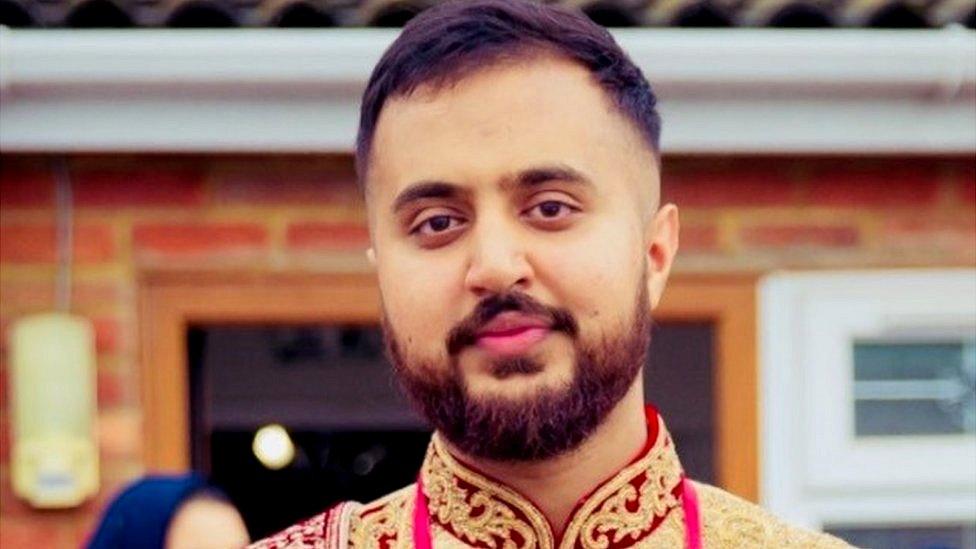
Mohammed was inspired to create his own platform after his own wedding left him with plenty of outfits to move on
The app Amna used to sell her outfit was co-founded by 28-year-old Mohammed Ali.
He created Dazzle and Bloom in 2021, after noticing a gap in the market following his own wedding.
"Initially we started off by looking for a platform where we can sell our Asian clothes and nothing was really made for us," he says.
"With Asian parties we're just so big and flamboyant in everything we do."
But he feels people are now also "thinking about sustainability and the cost of living".
Like Mohammed, Anoli has also started her own platform and thinks more culture-specific websites can encourage people to take up "pre-loved" wear.
Since starting Circular Threads, Anoli says she's noticed "people truly understanding that outfits do live more than one life".
"It was humbling seeing mothers turning up with their daughters and asking: 'Why haven't we done this before?'"


Related topics
- Published4 December 2023
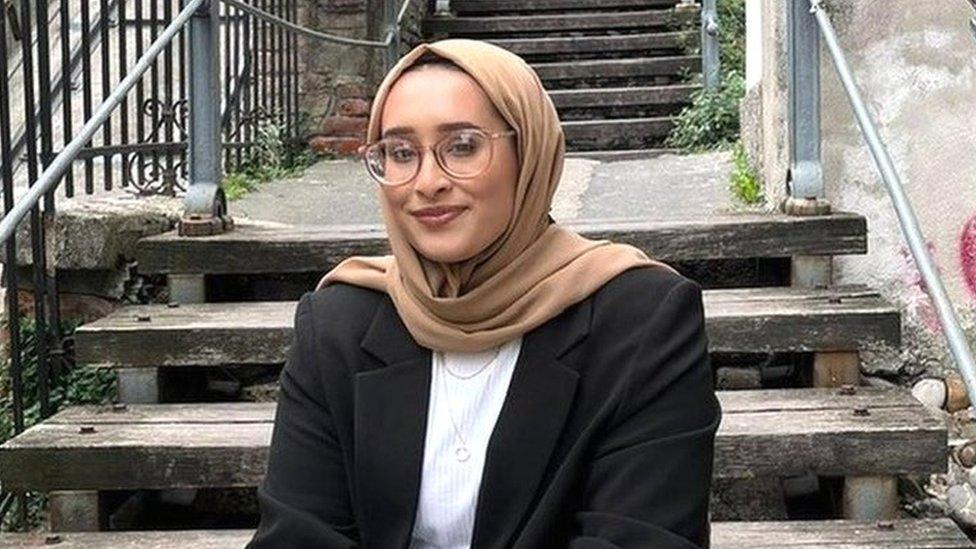
- Published1 February 2023

- Published22 December 2022

- Published29 March 2019
